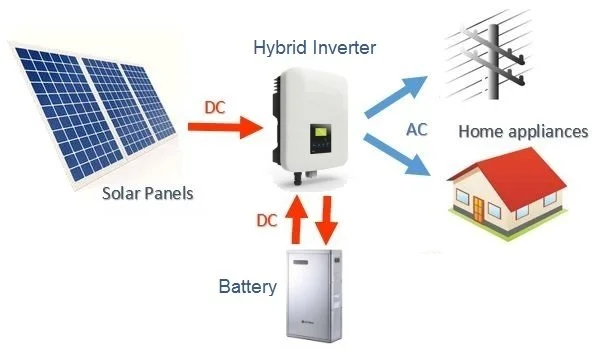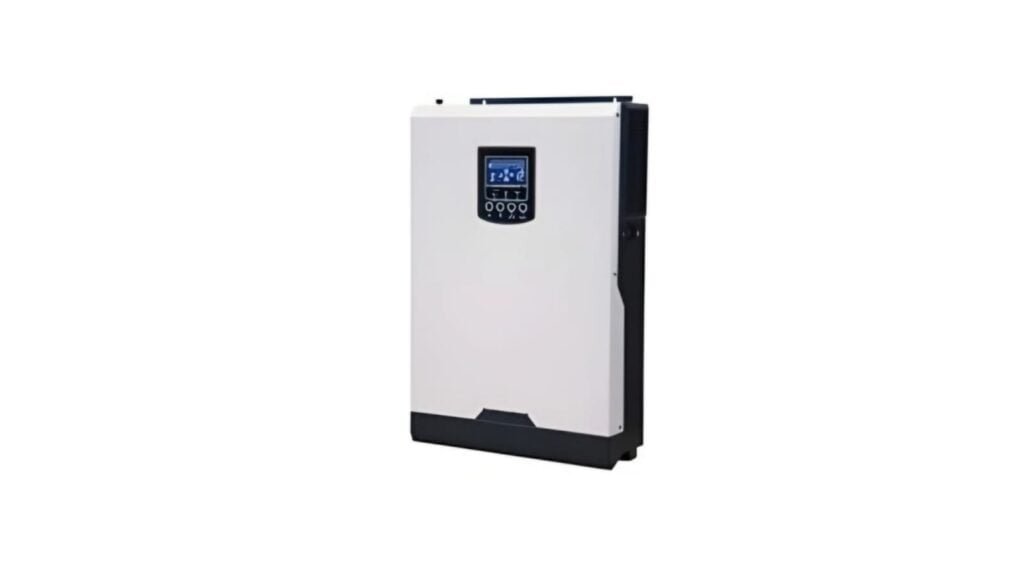
Table of Contents
ToggleHybrid Inverter
Features:
Some features of hybrid inventory are given there:
- Length: 415 mm
- Width: 310 mm
- Height: 120 mm
- Weight: 12 kg
- Maximum power output: 6,000 VA
- Nominal output power (at 230V): 5,500 W
- Input voltage (DC): 150-500 V
- Output voltage (AC): 230 V
- Voltage range (AC): 180-280 V
- Maximum efficiency: 97.5%
- European efficiency: 96.5%
Description:
The Hybrid Inverter market in South Africa has grown significantly in the last several years, providing businesses and homes with a dependable and effective way to utilize solar energy while maintaining a steady source of backup power during blackouts.
We might see hybrid inverters to make it into even more economical, intelligent, and efficient energy systems as technology develops. They are an important breakthrough in the fight against climate change since they can enable a centralized energy system and fully utilize renewable energy sources.
Advantages Hybrid Inverter:
Here we discuss some advantages of hybrid inverters.
Flexibility: Hybrid servers provide flexibility in their applications by adapting to various demands and scenarios.
Grid stability: Hybrid inverters provide backup power during outages, ensuring critical services’ operation and minimizing disturbances in blackout-prone regions, thereby maintaining grid stability.
Flexibility and scalability: Because hybrid inverters can grow with time, they provide modular and scalable renewable energy systems that are appropriate for industrial, commercial, and residential applications.
Sustainability: Hybrids are an environmentally favorable choice since they enhance resource efficiency and minimize waste, thereby contributing to current sustainable practices.
Disadvantage:
Certainly, here are five simple disadvantages of hybrid inverters:
Complexity: Due to their complicated functioning and larger number of components, hybrid inverters can be more challenging to install, maintain, and repair.
Battery Dependency: For hybrid inverters to function, batteries are needed, which might result in extra expenses and upkeep needs.
Performance drawbacks: Because hybrid inverters must convert DC power to AC power and then back to DC power to charge batteries, they may experience performance losses.
Compatibility: Certain brands of solar panels or batteries may not work with hybrid inverters, which might limit the setup opportunities available to users.
Hybrid Inventor Installation Process:
Maintenance and Maintenance: To make sure the system operates at its best, carry out routine maintenance and upkeep.
Hybrid inverter installation: Installing a hybrid inverter involves wiring it to the electrical grid, a battery bank, and solar power.
System Test: To make sure the hybrid inverter system is operating and functioning properly, test it.
Delivery of goods: Bring solar panels, batteries, hybrid inverters, and other necessary supplies to the location.
Conclusion:
Last but not least, the Hybrid Inverter market in South Africa has grown significantly in recent years, giving businesses and homeowners a dependable and effective way to use solar energy and a dependable backup during blackouts. guarantees a steady supply of backup power. Hybrid Inverters have a Maximum power output: of 6,000 VA, Nominal output power (at 230V): of 5,500 W, an Input voltage (DC): of 150-500 V, an Output voltage (AC): of 230 V, and Voltage range (AC): of 180-280 V, Maximum efficiency: 97.5% and European efficiency: 96.5%.
FAQ’s:
A hybrid solar inverter is a device that combines solar and battery functions, enabling efficient control of electricity from utility grids, solar panels, and batteries.
By smoothly connecting with the grid, hybrid inverters enable households to take advantage of financial benefits by drawing electricity during periods of heavy demand and returning excess energy.
Although hybrid solar inverters are built with efficient heat loss, this effect is minimized even with continuous operation.
A hybrid solar inverter can run without batteries. It has connections to the grid and solar panels, allowing it to draw electricity from both sources.

